GOULDSBORO — About five years ago, Roxanne Quimby looked around Raven’s Nest Farm, the 25-acre place she has owned in Gouldsboro since 2002. She wanted to participate in the local food movement ramping up around Maine. She had eggs. She had kale.
These are hardly unique items on Maine farms. Quimby, however, had a few other, more ephemeral things. Thanks to having sold Burt’s Bees (estimates are at more than $300 million for the personal care products line), she had the time and money to travel to Italy to study pasta making, an excellent way to add value to farm products like eggs and kale.
Quimby also had the desire to help build the local economy in this summer place she’d come to love, a peninsula just Down East from Mount Desert Island and Acadia National Park where jobs are scarce even in the summer, and particularly in the winter when nearly everyone clears out but the lobstermen. Maybe she could add a few.

Roxanne Quimby
“That was a big part of it,” she said on a recent July afternoon in the commercial kitchen of My Pasta Art, the company she’s positioning for a growth spurt.
In the background, one of the three pasta machines (big, bigger, biggest) she imported from Italy emitted a steady whine along with squiggles of beet-colored pasta formed in a shape called campanelle.
“Isn’t that pretty?” Quimby asks, pointing out the frills on the side of the almost lilac-colored pasta as her pasta maker, Kelli Grover, caught the finished pieces on a drying tray. “To me it looks like a little Cinderella skirt.”
When she started this pasta business, it was a farm stand, farmers market kind of venture, fresh pasta only. These days she’s expanded from just “short cuts” (like tubular pastas) to “long cuts” (long skinny pastas like bucatini), and she’s selling dry as well. She’s talking about the company maintaining its local feel, but expanding into a brand that would be recognizable throughout the Northeast. “Mid-Atlantic to Maine,” she said. “That would be a nice little local market for us.”
My Pasta Art will be represented at four trade shows this year alone, and the wholesale orders that come from those trade shows make up the bulk of the company’s sales. But Quimby also sells to local restaurants and a few retail outlets, like John Edwards Market in Ellsworth and Tiller & Rye in Brewer. Even as she says “mid-Atlantic,” one gets the sense that she could easily move that line south, or west. Really, once you get to Maryland, why not push through to Virginia, or the Carolinas?
In person, Roxanne Quimby gives the impression of being both resolutely practical and, incongruously, almost dreamy. As if her gears whir as steadily as those pasta machines, turning out ideas as fast as pretty pasta.
Because the third reason for this pasta business – and the five or six other Gouldsboro-based enterprises she’s working on – is that Roxanne Quimby cannot stop making and selling things: ideas, places, pasta.
“In a lot of ways, the size of the business isn’t what she is after,” said her son Lucas St. Clair. “It is this transaction. She loves making something and having someone else like it enough to want to spend money on it, whether it is a dollar or a million dollars.”

Kelli Grover checks the cut on an Italgi pasta machine while making fresh Gigli pasta at Raven’s Nest Farm in Goulsdboro. Staff photo by Derek Davis
‘HEY, I’M RIGHT HERE’
You’ll notice there’s no recent photo of Quimby accompanying this story. Quimby is no J.D. Salinger, hiding out in a remote New England town. But when she had St. Clair take over the role of family spokesman and advocate in the effort to turn the family’s massive land holdings in Maine’s North Woods into what is now the Katahdin Woods and Waters National Monument, she decided to stay out of the limelight – and while she was at it, the camera’s gaze, as well.
Often, this can be handy. Once she was sitting at the Bangor airport, waiting for a flight, listening to the people next to her talking about “Roxanne Quimby.” She said they were describing her alleged intentions to shut down hunting and keep all the locals out of the woods they’d always considered theirs. They clearly thought she was awful. She thought about turning to them and announcing, “Hey, I’m right here!” Instead she kept quiet in her seat. She shook her head and smiled over the memory.
Gouldsboro doesn’t offer much anonymity, given the population (1,737 in the 2010 census), but as St. Clair puts it, “if she needs her space, she can get it.”
But she likes talking to people. About a minute after she sat down to lunch at Corea Wharf Gallery & Grill, owner Joe Young strolled by with a topic he wanted to discuss. What if the Island Explorer that ferries people around Acadia, including the new campground on the Schoodic Peninsula, could make a run down to Corea? It goes as far as Prospect Harbor already, he reasoned. Would she be willing to help him lobby for that? It would help his business – which Down East magazine named the best lobster shack in Maine in 2016 – and it would also reduce the number of cars on the road, he said.
Quimby listened and nodded and seemed unfazed by being pitched an idea over lunch. Young felt comfortable pitching her; it could be good for her as well. Ultimately, when Quimby gets the campground she bought in the fall of 2016 – Ocean Woods Campground, a beloved institution that closed and that many feared would be developed for homes – up and running again, campers could hop the bus down to the wharf.
Plus, the millionaire next door is not only approachable, he trusts her opinion.
“Obviously, she knows her way around business,” Young said.
Quimby particularly likes talking to people at markets. One of the formative experiences that shaped her as a businesswoman was selling hot dogs on Revere Beach in Massachusetts when she was a child, making change for her grandmother.
“Baba was like her favorite person in the whole world,” St. Clair said. “And she learned so much about being a merchant from her. And that, in a lot of ways, set her on this course.” It’s what makes her drive down to Belfast to the Saturday market in the new United Farmers Market of Maine and sit behind a booth, hand-selling her pasta.
“That is the merchant in her,” St. Clair said. “She wants to see what people’s reaction to say, a pasta with poppy seeds in it is.” This back-and-forth with customers, and really, Quimby’s constant curiosity, is a large part of what made Burt’s Bees – now owned by The Clorox Co. – so successful.
A ROOM WITH A VIEW
Pasta isn’t the only thing Quimby is cooking up in Gouldsboro. She’s been quietly working at ways to bring tourists into the area, which she calls so beautiful it’s almost “outrageous.” She considers it underappreciated by the public.
“People just don’t get past Ellsworth,” she said.
There’s the campground, a 113-acre property that operated as a campground until 2009, when it went into foreclosure. It features beachfront and has many loyal fans who followed the saga of its closure, possible sale on the auction block and then rescue from development by Quimby. She paid an undisclosed amount in a bank sale, right before a scheduled auction. The campground is being restored and should be open next year.
Quimby also owns a number of homes around the Gouldsboro area that she’s restored and is renting out on Airbnb. “I think we have nine of them now,” she said. Part of the reason the Schoodic Peninsula hasn’t seen many tourists is that it lacks places for them to stay. The new 93-site campground that is part of Acadia is changing that, and so are Quimby’s “restoration projects.”
“We have 260 nights sold in July and August,” she said. “The whole town, you can see, has picked up.”
She even took part in a beautification project involving buying two properties with some serious Beans-of-Egypt-Maine style trailers on them and turning the land they were on into a meadow.
But she’s not looking to turn her summer community into the next Bar Harbor.
“I am hoping that we can have a little controlled growth,” she said. “This place is so down and out in the winter.”

Grover checks the cut of gigli pasta that has come out of an Italgi pasta machine. This batch included beet juice. Staff photo by Derek Davis
PASTA PLANS
Quimby makes chocolates as well, truffles that the chef at Saltbox in Winter Harbor serves as a trio with port. (Saltbox has another Quimby connection; she persuaded chef Mike Poirier to move from a tiny location in Hancock into the former site of the restaurant St. Clair ran there in the early aughts, Mama’s Boy Bistro). Chocolate-making is tricky, though, so that’s unlikely to turn into major venture. “It is very precise work.”
Pasta, though, pasta has a simplicity she admires. When she traveled to Carasco, the town near Genoa where the company that makes her machines is based, she was surprised to learn how easy it was.
“In the first half hour of class they told us what kind of flour to use, what machine to use and what the formula was of flour to liquid,” she said, sounding slightly disappointed at the lack of a challenge. “And I realized, that is all you need to know.”
With the local food movement fomenting back home in Maine, she thought about how strange it was that Americans almost entirely eat pasta made in Italy, that travels long distances. “It just seemed like, ‘We could do that.’ ”
She found a good source of semolina flour in the Great Plains, and the rest of the ingredients she could produce in Gouldsboro. Originally, she planned to make only fresh pasta. She’d encountered enough people who had given up on making fresh pasta at home – because, well, the work, the mess, the uneven results – to believe there would be a demand for it.
The dry pasta (which for My Pasta Art is her fresh pasta carefully dried and packed to travel) seemed like a logical next move. Now she’s considering adding ravioli to the line. But the notion that it stay “local” is important to her: Maine jobs, mostly Maine ingredients and Maine-made.
Of course, the woman who made a fortune off beeswax may not have a normal sense of what a “nice little” business is. Lucas St. Clair says he has learned to not make predictions about his mother’s next move, but he suspects his mother’s pasta company will go bigger than she expects.
“Only because she is unbelievably fearless,” he said.
Case in point, the name My Pasta Art. Quimby’s pasta has a beautiful website by that name, and that’s the name on the packages, but standing at the worktable in the commercial kitchen that once was a falling-down shed, she studies the purees of vegetables and the containers of eggs, and says that this particular name might not stick, even several years in.
“It is sort of the working name right now,” she said.
Conventional wisdom would be that consistent branding is a key part of business. St. Clair said he’d be terrified to change the name of a business he was running. But not his mother. “She doesn’t think twice about it,” he said. Burt’s Bees made dog biscuits and fruitcakes and sold seeds at various points, he said; his mother was experimenting.
Musing about the name, Quimby sounds almost like someone debating what color couch to buy for her living room, She’s no dilettante, though. For her, the bottom line remains essential in her new venture even if some might argue that for one of the most successful business people in Maine’s history, it doesn’t have to be. When St. Clair was running Mama’s Boy Bistro she was unimpressed with how little money he was making. “She would say, ‘Your profit margins are terrible,’ ” he remembered, laughing. “And I would say, ‘I am actually doing pretty good for a restaurant.’ ”
“It took me awhile to figure out what Burt’s Bees’ name was going to be,” Quimby said. “It took awhile to evolve into a storyline that differentiated the product from everything else out there.”
This story then, the story of the Maine-made pasta, is still being written.
Mary Pols can be contacted at 791-6456 or at:
Twitter: MaryPols
Send questions/comments to the editors.


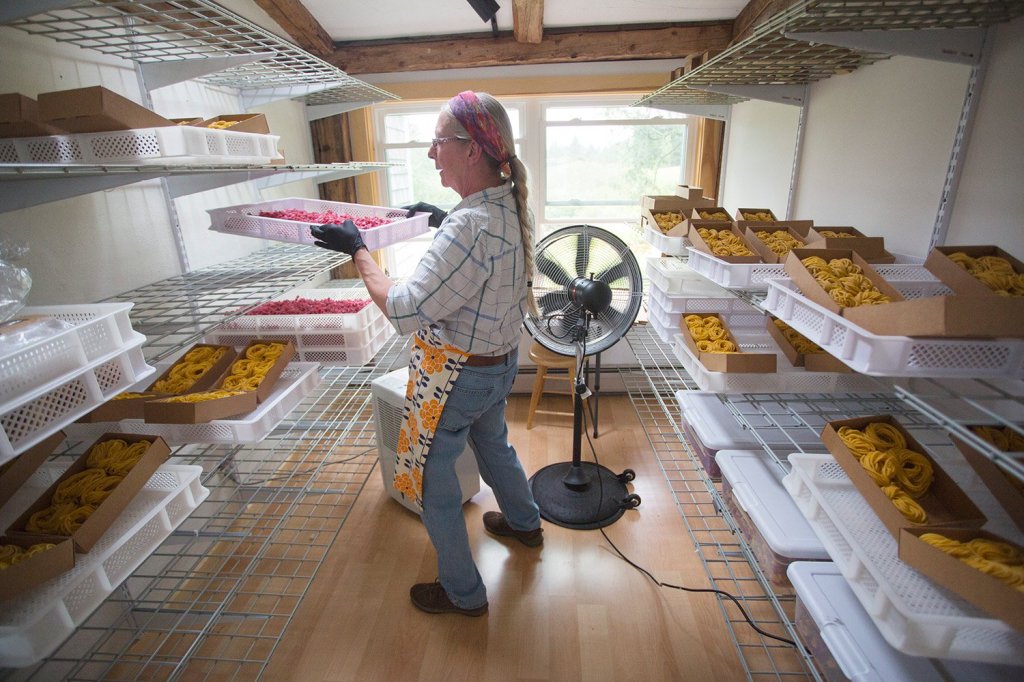
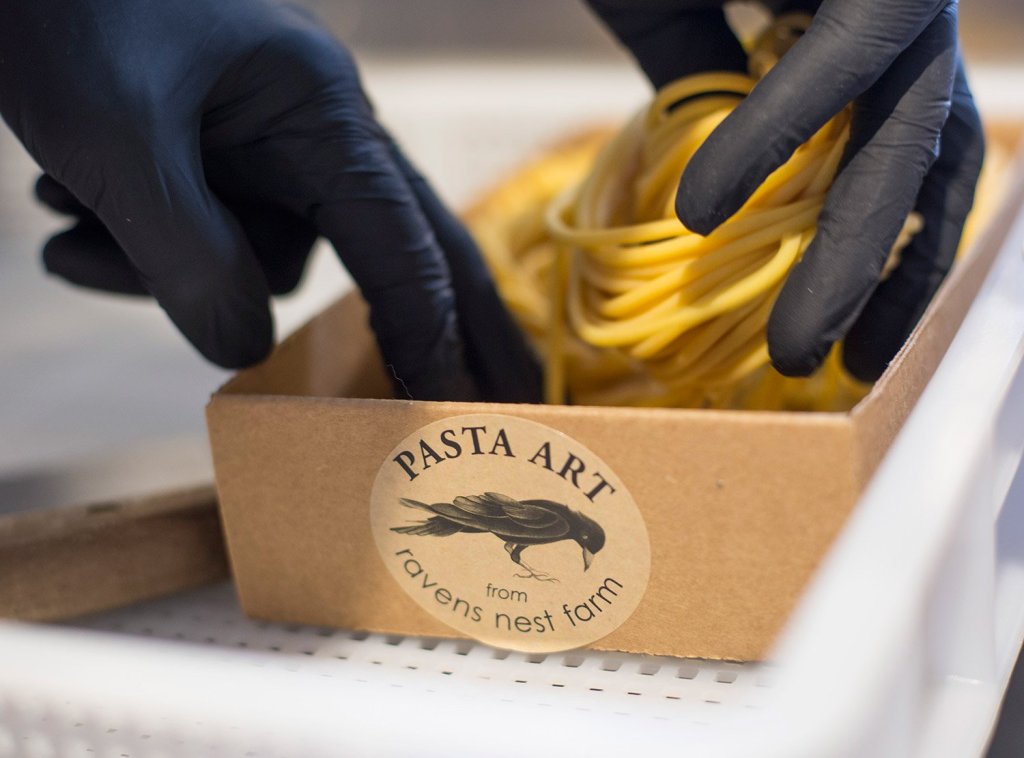
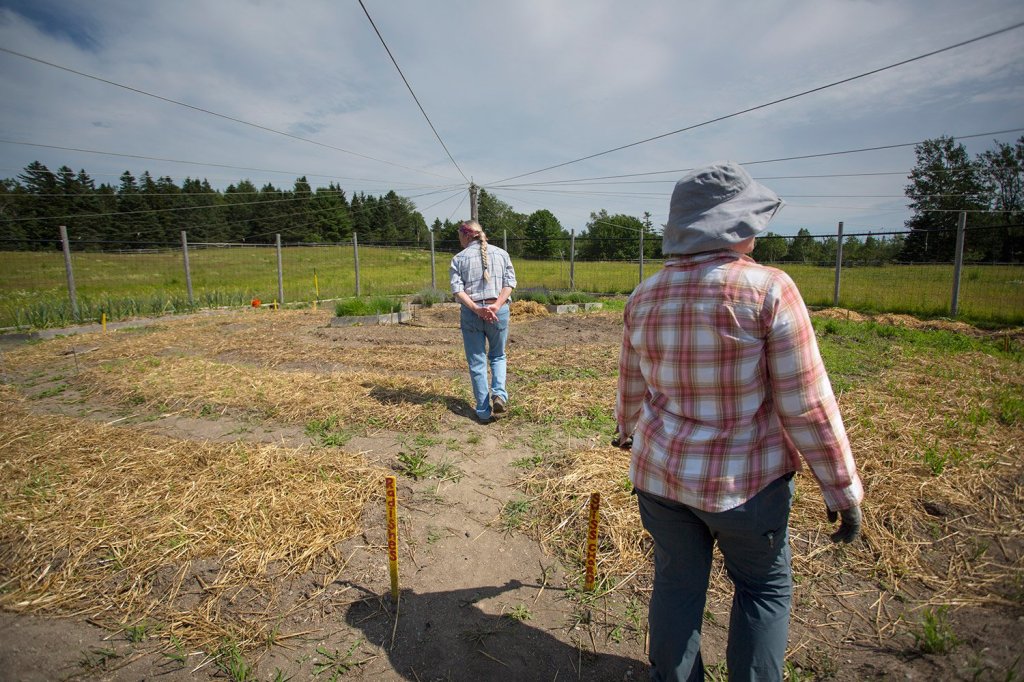
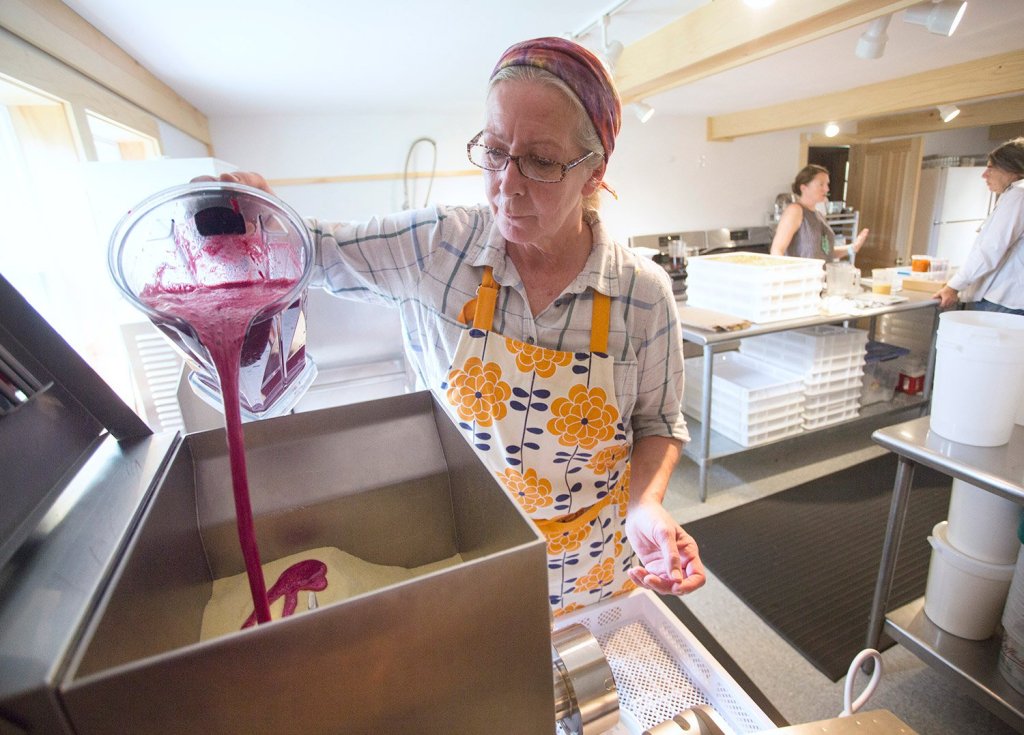
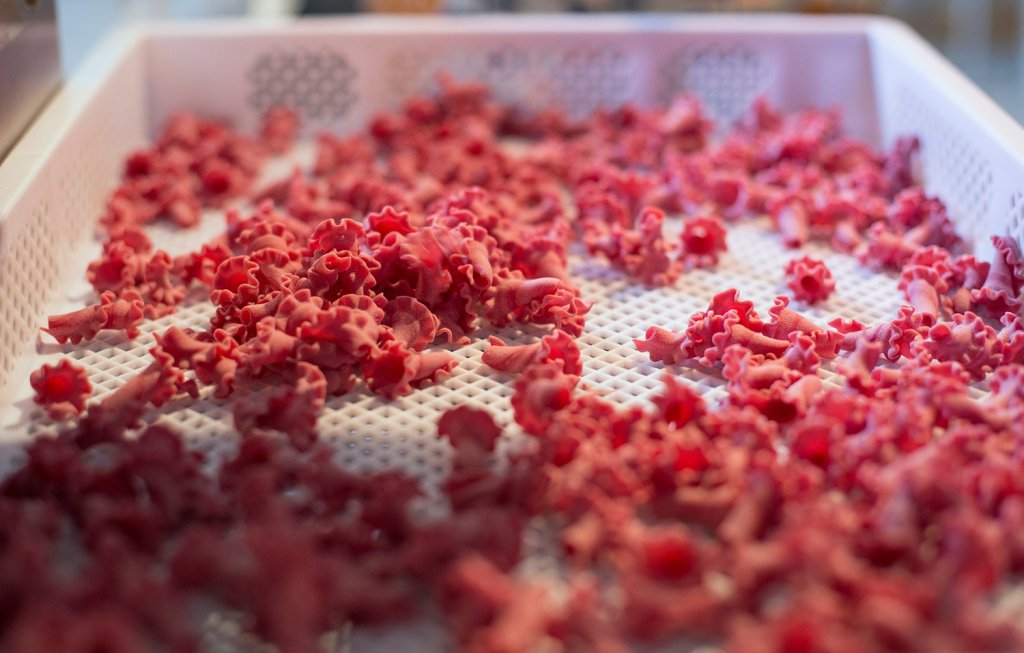
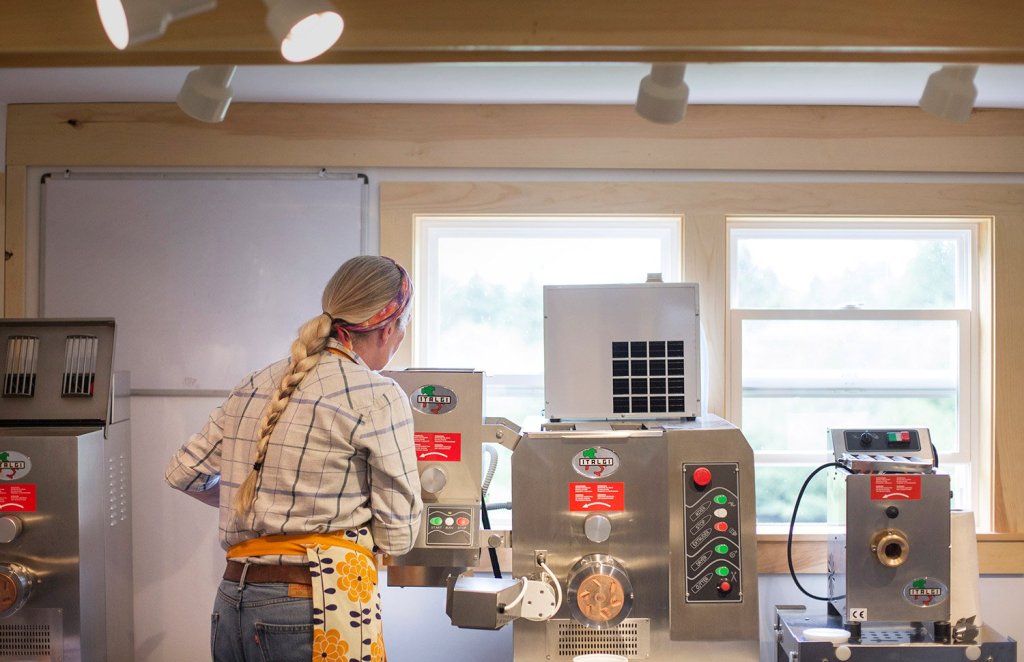
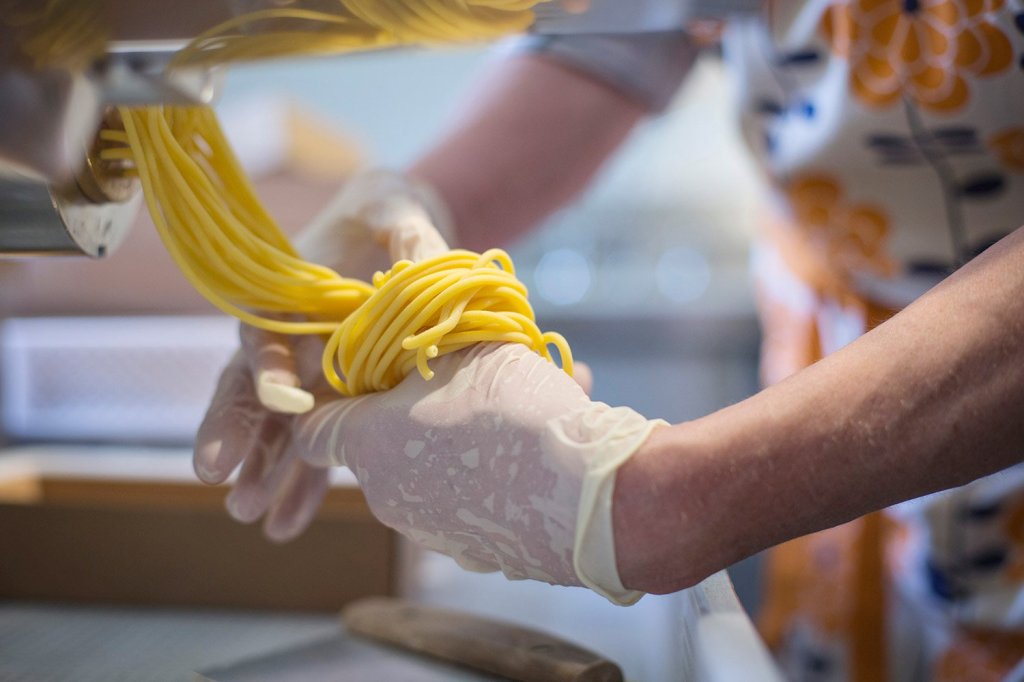

Comments are no longer available on this story